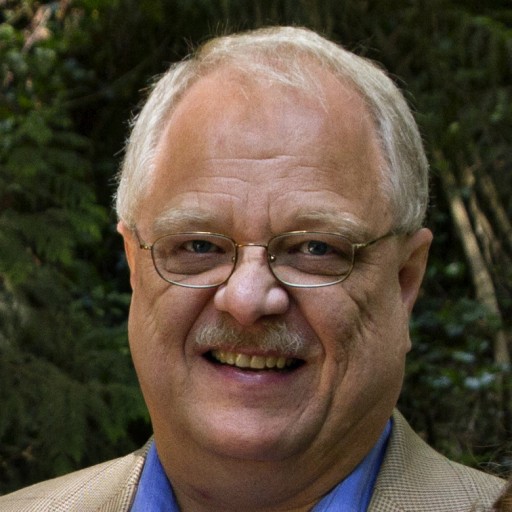Participating in God’s Mission
 For months, the financial crisis has dominated the news. Pundits speculate on the bankruptcies of automakers and the ripple effect it may have on the economy. City officials look closely at foreclosure rates in their neighborhoods, calculate the shock on city budgets and services, and assess the impact on perceptions of livability. Some people wake up on Saturday to discover their bank failed on Friday and the federal government has brokered a peaceful takeover by a solvent bank.
For months, the financial crisis has dominated the news. Pundits speculate on the bankruptcies of automakers and the ripple effect it may have on the economy. City officials look closely at foreclosure rates in their neighborhoods, calculate the shock on city budgets and services, and assess the impact on perceptions of livability. Some people wake up on Saturday to discover their bank failed on Friday and the federal government has brokered a peaceful takeover by a solvent bank.
Two words summarize the commonality of bankruptcy, foreclosure, and bank failure: no margin. Bankruptcy admits that assets provide no margin for the liabilities. Foreclosure results when a person walks away from homeownership due to an inability to make the mortgage payments—no margin. A failed bank does not have the margin to properly serve its customers.
Richard Swenson, in Margin: Restoring Emotional, Physical, Financial, and Time Reserves to Overloaded Lives, defines margin as “the amount allowed beyond that which is needed” (p. 91). From a personal finance perspective, margin develops when income exceeds expenses every month, and the emergency fund easily navigates unexpected liabilities. Likewise, proper retirement planning is the result of providing adequate margin for senior living.
Building Margin
The process of building margin is simple: increase income and/or decrease expenses. Not just the domain of financial advisors, the topic was addressed by John Wesley in a sermon on “The Use of Money,” where he discussed these two steps.
“Gain All You Can.” This was Wesley’s first point. He quickly moved to put qualifiers on this admonition. One must not harm body or mind in the process of monetary gain, he said, nor hurt a neighbor. He cautioned against deliberately prolonging a circumstance so as to profit from another’s need. Within proper practices one should be a diligent worker, seeking to continually improve so as to be more profitable tomorrow. That will build margin.
“Save All You Can.” This is the “second rule of Christian prudence,” according to Wesley. The “saving” Wesley referred to, however, had nothing to do with bank accounts. Instead, he discussed simplicity and frugality. He cautioned against vanity-induced spending sprees, and urged wise choices in the use of money. This, too, will build margin.
Missional Stewardship
“Give All You Can.” Wesley had this one more point in his sermon: After providing appropriate care for your family and yourself, Wesley wrote, use your money to care for those in the “household of faith” and to “do good unto all men.” The “good steward” gains and saves to be able to give. Swenson stated that margin “nourishes both relationship and service. Spiritually, it allows availability for the purposes of God” (Margin, p. 91). As a person builds financial margin, he or she can increasingly serve others as the embodiment of God’s love.
In this sermon, as was his custom, Wesley used questions to prompt serious inquiry into discipleship, in this case a Christian’s use of money. Let me collapse four questions into two and restate them through the lens of missional theology. When considering an expenditure, these questions will help align the use of money with a commitment to participate in God’s mission.
First, does this expenditure emerge from who I am and am becoming as a Jesus follower? In the Sermon on the Mount, Jesus’ manifesto on Kingdom living, Jesus said, “where your treasure is, there your heart will be also” (Matt. 6:21, TNIV). I’m more convinced now than ever that “being” precedes “doing,” especially when it comes to the use of money, so I need to regularly check to see that my financial habits embody my spiritual values.
Second, does this expenditure further the already-but-not-yet Kingdom of God? Jesus said, “seek first his kingdom and his righteousness” (Matt. 6:33, TNIV). In a world where recreational shopping leads to impulse buying and a measure of emotional relief, where advertisers suggest plastic can bring happiness through instant gratification, Jesus urges disciples to abandon self-serving actions and follow him in the crucified life (Matt. 16:24). A person looks most like Jesus in the act of giving. I need to regularly confirm that my financial decisions align me with God’s mission.
One evening at dinner, I told my wife, Judi, about a pastoral visit I had made that afternoon. Louie and May lived in a modest home in a less than ideal neighborhood. They anticipated better circumstances for their later years, but a company bankruptcy about the time Louie retired pushed them onto financial thin ice. As Judi and I talked about it, we decided we must assist with the critical need they faced.
I’ve reflected on that experience many times in the succeeding years. Judi and I could come alongside Louie and May in overcoming the dire circumstances only because our own financial house was in order. Since we had financial margin we were able to share with friends in need. That realization has motivated us to be even more vigilant in financial matters so that we might better be ready to participate in God’s mission.

